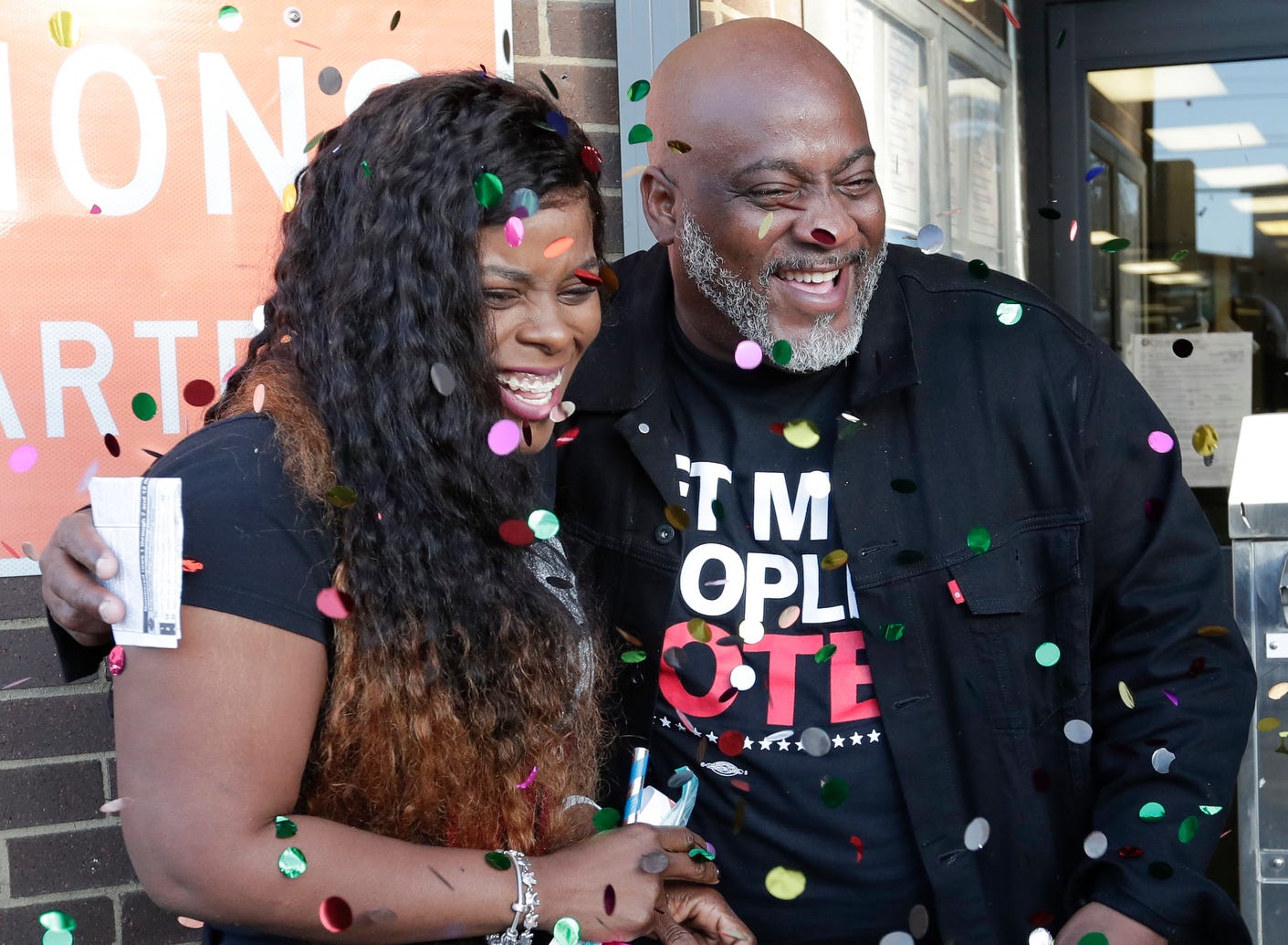A federal appeals court dominated by President Donald Trump’s nominees ruled Friday that hundreds of thousands of Florida felons who have completed their sentences cannot vote this fall or in the future unless they pay fees and fines owed to the state.
The decision from the U.S. Court of Appeals for the 11th Circuit, along strict ideological lines, could have a major impact on the presidential race because of Florida’s history of razor-thin margins. In 2000, George W. Bush won the White House with a 537-vote victory margin there.
The appeals court’s ruling was written by Chief Judge William Pryor, who was named to the court by President George W. Bush and is on Trump’s list of potential Supreme Court nominees. The other five judges in the 6-4 majority were appointed by Trump. All four judges in the minority were named by Democratic presidents.
The legal battle stems from a constitutional amendment passed by Florida voters in 2018 that allows most felons to vote after their sentences are complete. Those convicted of murder or a felony sexual offense are not included.
In response, the Republican-controlled state Legislature passed and Gov. Ron DeSantis signed a law requiring that felons first pay all of their financial obligations.
“Because court costs and fees are legitimate parts of a criminal sentence – that is, part of the debt to society that felons must pay for their crimes – there is no basis to regard them as a tax,” the appeals court ruled.
There are about 775,000 felons in the state who have completed their prison sentences, including parole or probation. So far, at least 85,000 have registered to vote and will be screened for eligibility, based on the financial requirements. Unless the state finds information that disqualifies them, Pryor wrote, those felons “are entitled to vote.”
In dissent, Judge Adalberto Jordan and three colleagues said the ruling will “obstruct, impede and impair the ability of felons to vote” because even those already registered risk committing a crime if they later are found to owe money as part of their sentence.
“Should any of these 85,000 registrants choose to vote in the upcoming election – as they may believe, in good faith, they have a right to do – they risk criminal prosecution if they turn out to be wrong about their eligibility,” Jordan wrote.
More:Ahead of Florida primary, 1.4 million former felons unsure whether they can vote in 2020

Voting rights groups had challenged the law as unconstitutional, and in May, U.S. District Judge Robert Hinkle struck it down as a “pay-to-vote system.” He said most felons cannot afford to pay what they owe – if the state even can determine the amount.
The appeals court temporarily blocked Hinkle’s ruling while considering the case, which was heard in August. A majority of the Supreme Court refused to intercede without comment, with three liberal justices dissenting.
“Under this scheme, nearly a million otherwise-eligible citizens cannot vote unless they pay money,” Associate Justice Sonia Sotomayor said, calling it a “voter paywall.”
Most states restore felons’ voting rights after their sentences are complete. Many states impose additional requirements. Florida is among 11 states with the most restrictive rules, according to the National Conference of State Legislatures.


